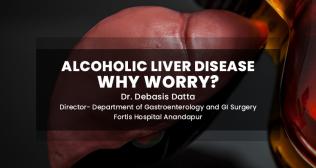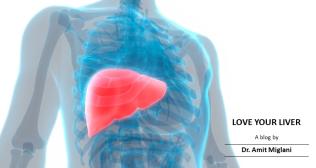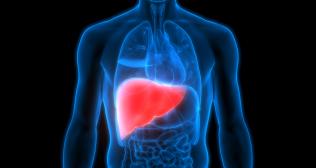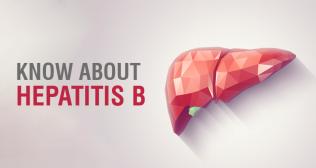
Which Alcoholic Drinks Are the Healthiest?
The majority of us are aware that drinking excessive alcohol is harmful to our health. However, some beverages are better choices. Certain alcoholic drinks, when consumed in moderate quantities, can pose potential health benefits. The CDC recommends limiting two drinks of alcohol intake in a day for males and one drink for females. Meanwhile, healthcare providers always suggest that drinking alcohol is always harmful. However, research suggests having one or two drinks in a day may offer protective benefits for heart health.
Which is the best alcohol for health?
When considering the best alcohol for health, certain beverage options are thought to offer benefits. If you are looking for which alcohol is good for health or which alcohol is least harmful, moderation is key to minimising risks.
It is important to know that there is no such definitive labelling as the best alcohol for health. But some types of alcohol are good for health as they do have certain secret health benefits. Before we delve into specific types of alcoholic beverages, let us understand what makes alcohol good for health. Generally, a healthy alcoholic beverage is one that is low in calories, sugar and additives. It should also include ingredients that have health components such as antioxidants and essential minerals.
Drinks that offer health benefits
- Beer: This popular beverage is made from fermented grains like barley, wheat and corn. Beer is rich in antioxidants known as phenols and essential minerals such as calcium, magnesium and zinc, along with B vitamins and amino acids. Studies suggest that light to moderate beer consumption may offer health benefits, including improved heart health and reduced risk of neurodegenerative disease. Additionally, beer can lower the risk of hypertension and aid in maintaining healthy blood pressure levels.
- Red wine: Red wine is an alcoholic beverage made from fermented dark-coloured grapes, retaining the grape skins during fermentation, which enhances its antioxidant content. Many people doubt ‘Is drinking wine good for health?’. According to a study, moderate consumption of red wine can offer health benefits. Red wine is noted for its ability to activate longevity genes, potentially extending lifespan. It contains polyphenols like resveratrol, which is known to benefit heart health and lower blood pressure. It also boosts high-density lipoprotein (HDL) cholesterol while reducing low-density lipoprotein (LDL) cholesterol.
- Ethanol: Ethanol is an active ingredient in the majority of alcoholic beverages and is considered the second most consumed beverage after caffeine. Moderate consumption of ethanol is linked to a reduced risk of neuronal damage and prevents neurodegenerative conditions such as Alzheimer’s disease and dementia. It can also reduce stress, enhance the feeling of happiness and lower the risk of cardiac diseases.
- Vodka: With its high alcohol content, vodka, a crystal-clear beverage, is known to eliminate bacteria causing bad breath. It also serves as a stress reliever, wound disinfectant, skin health enhancer and hair growth stimulant. Additionally, vodka can alleviate toothache pain. However, one should always keep in mind that taking multiple vodka shots can lead to rough hangovers and bad decisions.
- Whisky: Gargling whisky mixed with warm water can soothe throat pain. Whisky is also associated with weight loss stimulation, dementia prevention, diabetes and cardiovascular health improvement, HDL cholesterol increase and blood clot prevention. Whisky is known to remove plaques from the blood vessels and help to prevent stroke. The health results of whisky depend on moderate drinking as well as genes and other factors.
- Brandy: Brandy is packed with high alcohol content and antioxidants that offer anti-ageing benefits for the skin. It has an antibacterial effect and helps relieve cold, cough and throat symptoms. It also lowers LDL cholesterol levels and reduces the risk of gallbladder and kidney stones. Brandy promotes relaxation and can help to improve sleep when enjoyed in moderation.
- Rum: Rum consumption is linked to increased longevity and cardiovascular benefits. It acts as a blood thinner and raises HDL cholesterol levels. Occasional rum intake can also protect against osteoporosis and the common cold and neutralise free radicals.
Moderation – An important matter of alcohol
If you are wondering which alcohol is least harmful to your liver, moderation is key, as excessive consumption of any type of alcohol can have negative effects. While some studies suggest potential health benefits from certain alcoholic beverages, excessive drinking can have serious negative effects on your health.
The recommended daily alcohol limit is two drinks and one drink for women and men, respectively. It translates to:
- 5 ounces of wine (12% alcohol content)
- 12 ounces of beer (5% alcohol content)
- 1.5 ounces of distilled spirits (80 proof alcohol)
- Some measures to moderate alcohol drinking are as follows:
- Identify and avoid those drinks that can lead to bingeing
- Gradually increase the number of alcohol-free days
- Offer to drive on nights to avoid alcohol
- Limit alcohol consumption to special occasions such as gatherings or social events.
- Decide in advance what and how much you will drink
- Drink plenty of water to counteract alcohol dehydrating effects
- Eating before drinking as a substantial meal can reduce the quantity of alcohol consumption
If you’re regularly drinking to excess and want to seek help, you don’t have to do it alone. Get support to make things easier, starting with speaking to your doctor or nurse practitioner. Ultimately, how much you drink matters more than what you drink. So, whatever your preference, enjoy it responsibly and in moderation.
To identify a ‘safe’ level of alcohol consumption, scientific evidence would need to show that there is no risk of illness or injury at or below a certain level. However, the WHO clarifies that current evidence does not indicate a threshold where the carcinogenic effects of alcohol begin to manifest. No studies demonstrate that the potential benefits of light to moderate drinking on cardiovascular diseases and type 2 diabetes outweigh the cancer risk. The more you drink, the more harmful it is, and conversely, the less you drink, the safer it is. The potential protective effects of alcohol suggested by some studies are often influenced by the comparison groups and statistical methods used and may not account for other relevant factors.
Conclusion
The common perception of alcohol as injurious to health is widely accepted, but some research suggests that moderate consumption may offer certain health benefits. However, there is no strong evidence supporting the best alcohol for health or which alcohol is least harmful. Alcohol consumption should be limited only to social settings and to improve connectivity rather than a regular habit. Frequent alcohol intake is always harmful to health. Hence, moderation is key to minimising complications of alcohol consumption.



















